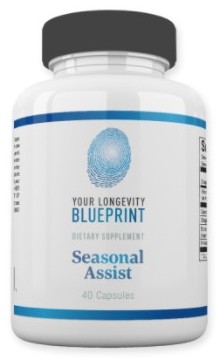It is estimated that upwards of 37 million Americans are affected by sinusitis every year. The U.S. Centers for Disease Control and Prevention estimate 33 million cases of chronic sinusitis translating to 1 in 7 or 13.7% of our population. Signs and symptoms often include fever, headache, swelling of the nasal passages, tenderness over the sinuses, nasal congestion, and halitosis.
Allergies are often predisposing factors for sinusitis.
Hay-fever or allergic rhinitis is the most common allergy experienced. Roughly 7.8% of people 18 and over in the U.S. have hay fever. Unfortunately, unlike others allergens, wind-blown pollen is difficult to avoid in most regions. Hay fever isn’t the only allergy Iowans can face. March to June is tree pollen season in Iowa. May to August is grass pollen season, July to October is weed pollen season, and August to October is ragweed season in Iowa. This means allergy sufferers could be symptomatic from March all the way through late October.
Conventional approaches to these frustrations often include interventions like decongestants, analgesics (aspirin and NSAIDS), antibiotics, anti-histamines, anti-inflammatories, and even steroids. While often times these interventions do provide relief, they may not be correcting the root cause of a repetitive and annoying problem.
Integrative medicine combines conventional medicine with complementary and alternative medicine and many patients feel this provides them with the most comprehensive care. Some individuals are fearful there is no evidence to support integrative medicine, but this is not the case. Take for instance a 2012 study in the Arch Otolaryngol Head Neck Surg study, “Integrative Approach Improves Symptoms and Quality of Life for Patients with Chronic Rhinosinusitis” which showed that weekly acupuncture, counseling on dietary modification, lifestyle changes, and acupressure decreased signs and symptoms and caused no adverse effects concluding integrative therapies are safe and effective forms of treatment for chronic sinusitis.
Additionally, in 1999 there was a landmark Mayo Clinic study, from the Mayo Foundation for Medical Education titled, “The Diagnosis and Incidence of Allergic Fungal Sinusitis,” from which investigation revealed 202 out of 210 patients with chronic sinusitis had, not only bacterial, but fungal and viral infections as well.
This study supports treating the fungal and viral components of these infections for true eradication. Treating a non-bacterial infection with antibiotics can end up feeding opportunistic yeast, one of the potential original causes of the infection, exacerbating the situation.
Furthermore, since many cases of sinusitis stem from allergies, part of preventing these cases of sinusitis involves preventing the allergic response. One of the most well-known preventers is quercetin. Quercetin is an antioxidant and flavonoid found in many plants like onions. It has anti-inflammatory properties and blocks the COX and LOX enzymes like other anti-inflammatories would, but most importantly it is a mast cell stabilizer. In other words it prevents degranulation of the mast cell, and prevents the allergic response, thus preventing allergic symptoms.
If you are sick of seasonal allergies and sinusitis, have you considered an integrative approach?
Have you assessed for the root cause of your problem? This may involve interventions like quercetin, and natural anti-viral and anti-fungal products. Remember that not all over the counter products are readily absorbed. Consult with your health care provider for a high quality product with the correct dosage for you. Also be cautious if pregnant, nursing, or taking blood thinning medications.
Bonus information: Looking for a natural Mucolytic?
Consider N. acetyl cysteine (also known as NAC). This is an Amino Acid which helps to break down the sulfide bonds of mucous, thinning the secretions making them easier to clear. NAC is also a precursor for glutathione, the most powerful antioxidant known to man. Thus NAC can also strengthen the immune system.
Be Proactive vs. Reactive.
It is always beneficial to be proactive vs. reactive. If you have been suffering from seasonal allergies and chronic sinusitis, consider a consult with an integrative health care provider who may be able to better help you resolve your issues so you can enjoy all of the seasons!
Consider taking my favorite seasonal allergy prevention product, Seasonal Assist.
Seasonal Assist is a targeted blend of flavonoids, antioxidants, proteolytic enzymes and botanicals designed to provide comprehensive support for seasonal challenges caused by common environmental allergens. The formula includes quercetin, bromelain, stinging nettles leaf, and N-acetyl cysteine. The powerful combination actively promotes healthy nasal and sinus passages for individuals with elevated histamine and respiratory irritation.


10399 Comments. Leave new